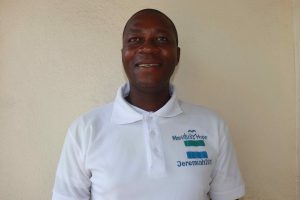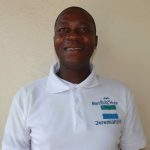April, 2023: Gbom Karma Community Well Rehabilitation Complete!
We are excited to share that a safe, reliable water point at Gbom Karma Community in Sierra Leone is now providing clean water to community members! We also conducted hygiene and sanitation training, which focused on healthy practices such as handwashing and using latrines.
"The old water source was a stream and it was not pure for drinking," said 15-year-old Mohamed K., whom we spoke to on our first visit to Gbom Karma. "Today, I am enjoying pumping water from the new hand pump. I am so thankful for the clean water being pumped from the pump."
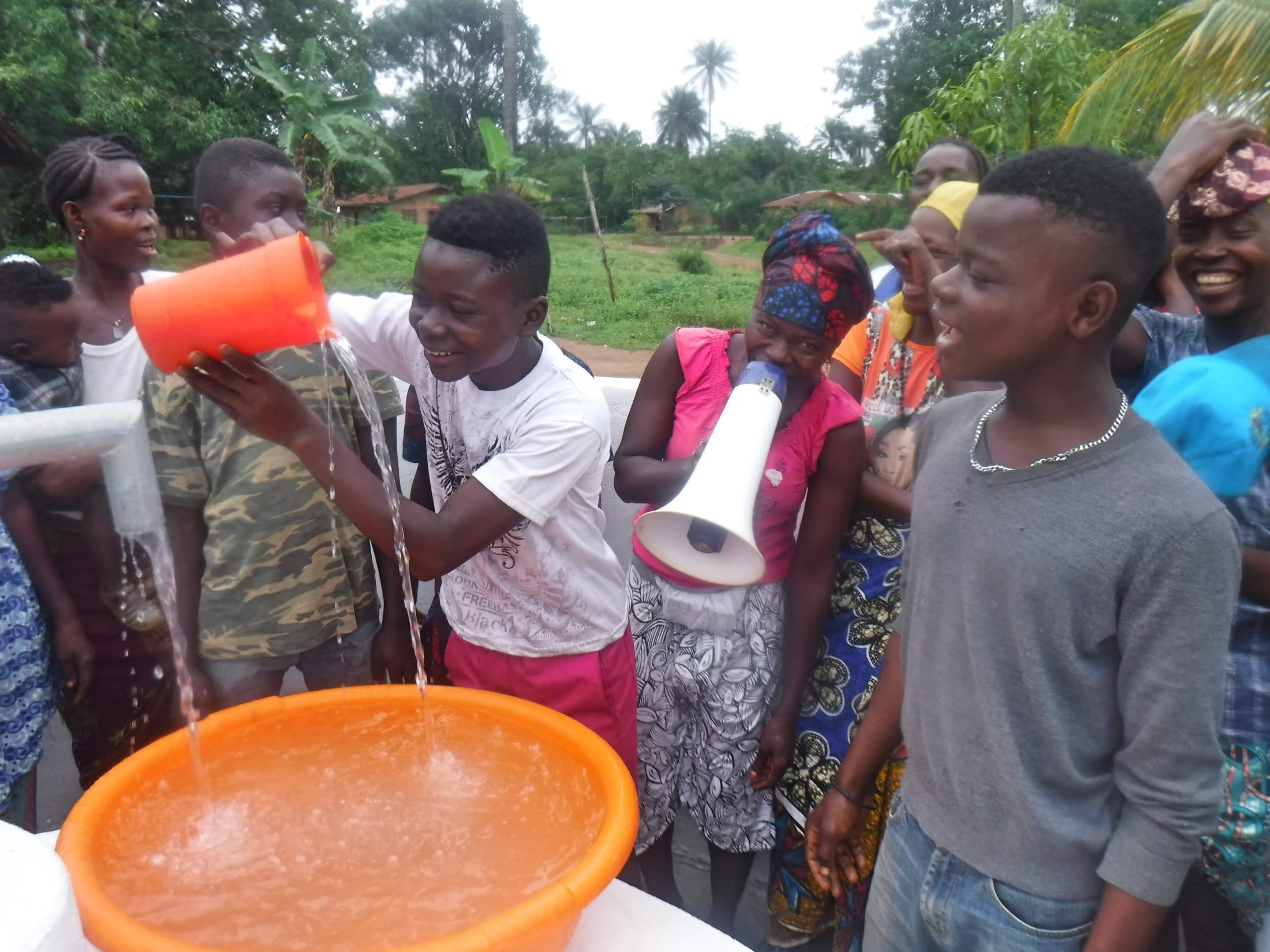
Mohamed, in the white shirt, pours water at the new well.
"Now, with the safe and pure water in the community, it will help break the negative effects of bad hygiene," Mohamed continued. "The new water point will enable us not to practice bad [hygiene and] to practice proper personal hygiene behavior. Also, we the children [will] take proper care of the water point."
"Today, I am happy for the new water point," said 29-year-old trader Mahawa Kamara. "Thank you for providing us [with] safe and pure water. The old water source is the stream; we bathe, fish, and launder our clothes there. And we even [fetched] water for cooking [and] drinking [there], and the water has a taste to it. The new water point is protected, and it is pure to drink."

Mahawa, in the pink shirt, cups her hands beneath the water's flow.
When we asked Mahawa about her goal for the future, she said, "To be sure that the water point is properly taken care of, like cleaning the well environment. Also, we informed our children not to launder clothes or bathe around the water point area. In the area of hygiene, we [will] practice frequent handwashing to prevent the spread of disease. Through the hygiene training, we have learned how we get diarrhea and how to treat it. With the availability of pure drinking water now in the community, it is easy to prevent dehydration using Oral Rehydration Salt (ORS)."
Our field officer, Moses, also mentioned Pa Sheku Kamara, who is the oldest man in Gbom Karma.
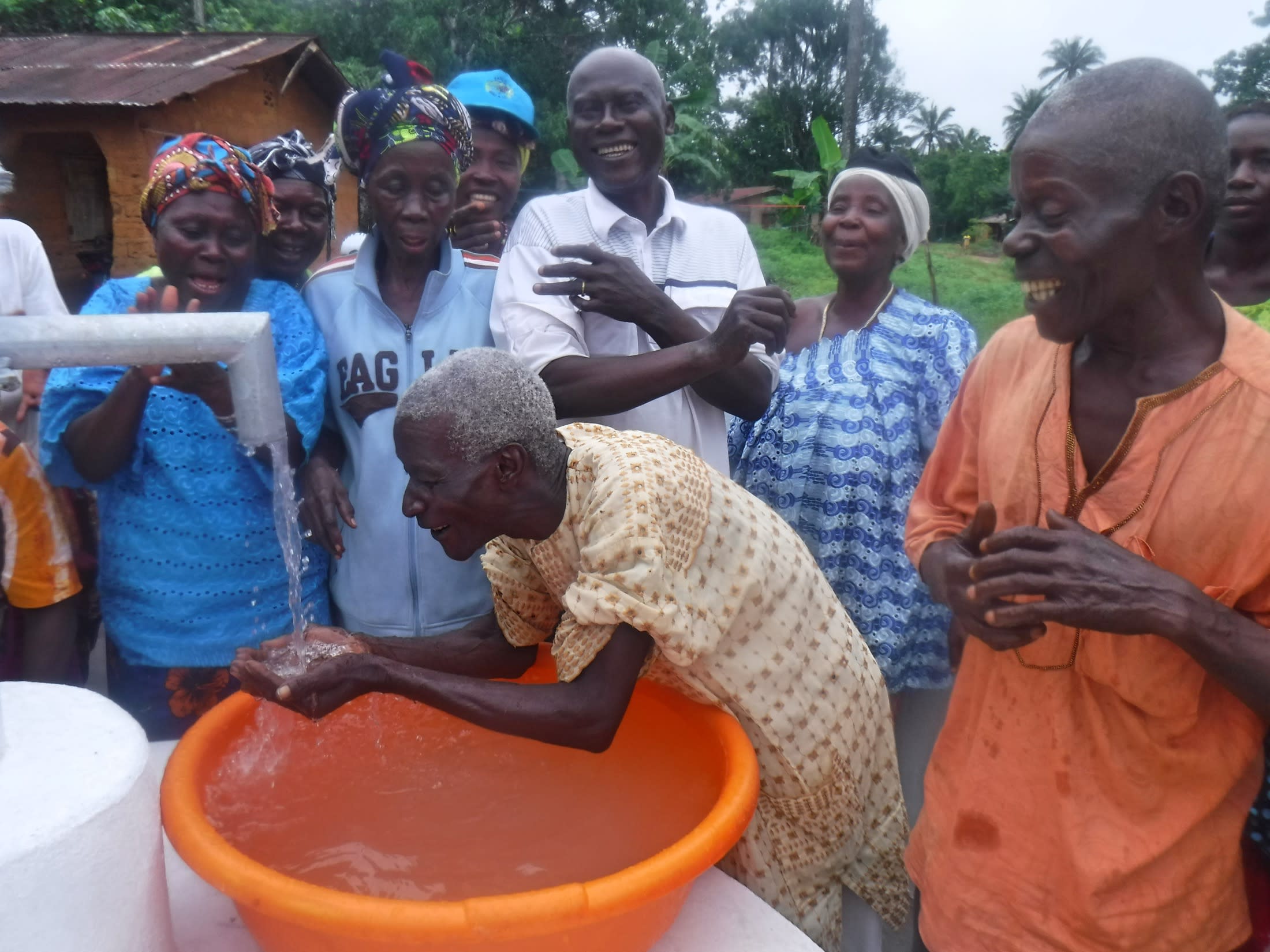
Pa Sheku at the well.
"He was so happy for the newly water point," Moses said. "He confessed by telling us he was sick for two weeks before the water point dedication ceremony. He was taken to the Community Health Center at Petifu Junction and [was] positive for typhoid. He said this is because of the stream water he [was] drinking. Since the rains started, the water tasted bad. He was extremely happy, playing with the water by washing his hands [and] face and splashing the water. It's a great day [for this community] to finally have a safe and pure drinking water [source] in the community that won't dry."
We held a dedication ceremony to officially hand over the well to the community members. Several local dignitaries attended the ceremony, including representatives from the Ministry of Water Resources and the Port Loko District Council. Each official gave a short speech thanking everyone who contributed to the rehabilitation of the water project and reminding everyone to take good care of it. Then, Mohamed and Mahawa made statements on their community's behalf. The ceremony concluded with celebration, singing, and dancing.
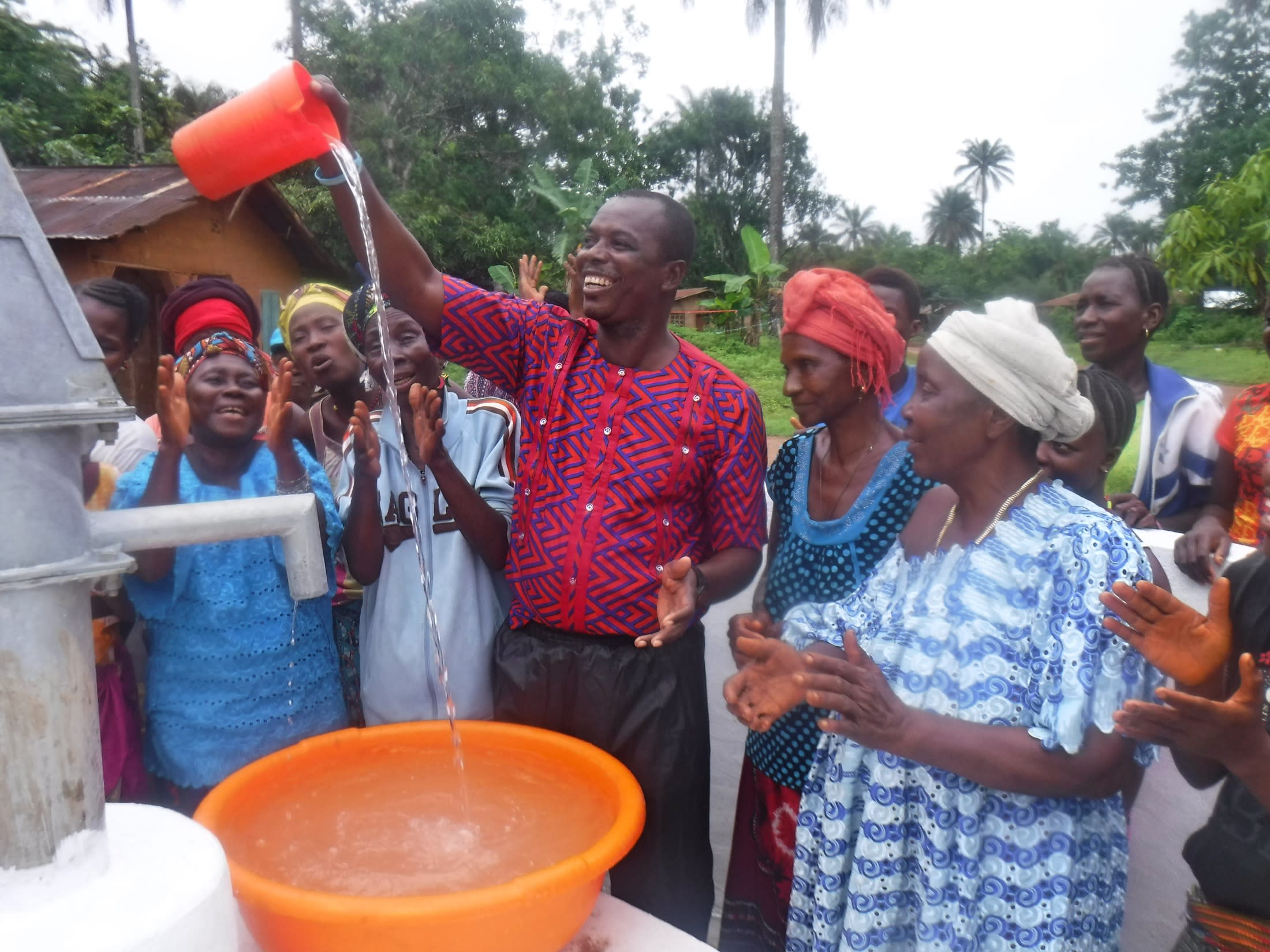
Abubakarr Bangura from the Port Loko District Council pours water while community members celebrate.
Clean Water Restored
The drill team arrived the day before beginning work. They set up camp and unpacked all their tools and supplies to prepare for drilling the next day. The community provided space for the team to store their belongings and meals for the duration of their stay. The following day, the work began.
First, we raised the tripod, the structure we use to hold and maneuver each drilling tool. Next, we measured the well's original depth. We then socketed the pipes and installed a casing.
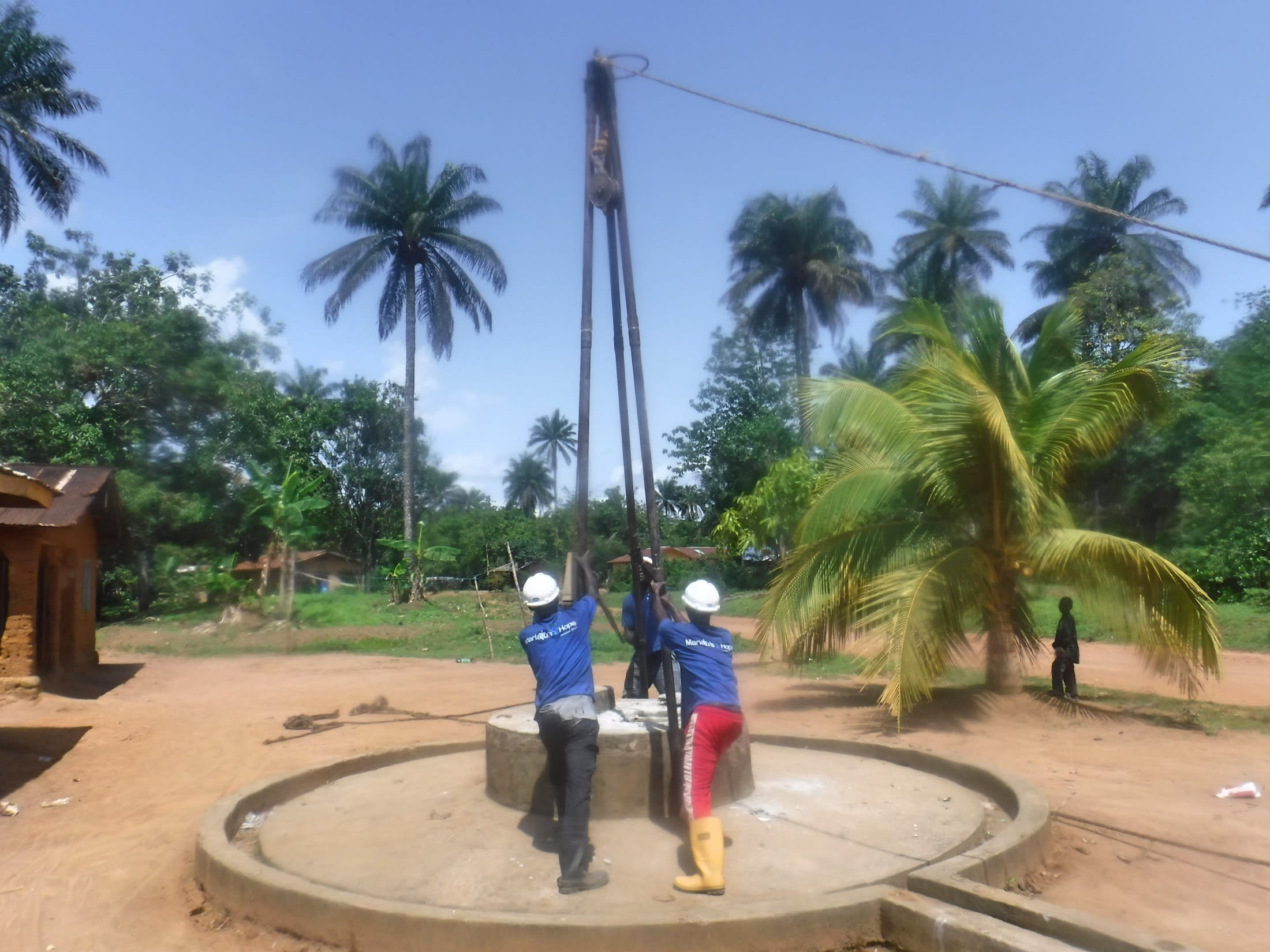
Setting the tripod.
Finally, we lined up the drill rods and started to drill! We reached a final depth of 19 meters with water at 13 meters. The hand-drill method allowed the team to install the cylinder far below the aquifer so that the community has excellent water access throughout the year.
With drilling complete, we installed screening and a filter pack to keep out debris when the water is pumped. We then cemented an iron rod to the well lining and fixed it with an iron collar at the top.
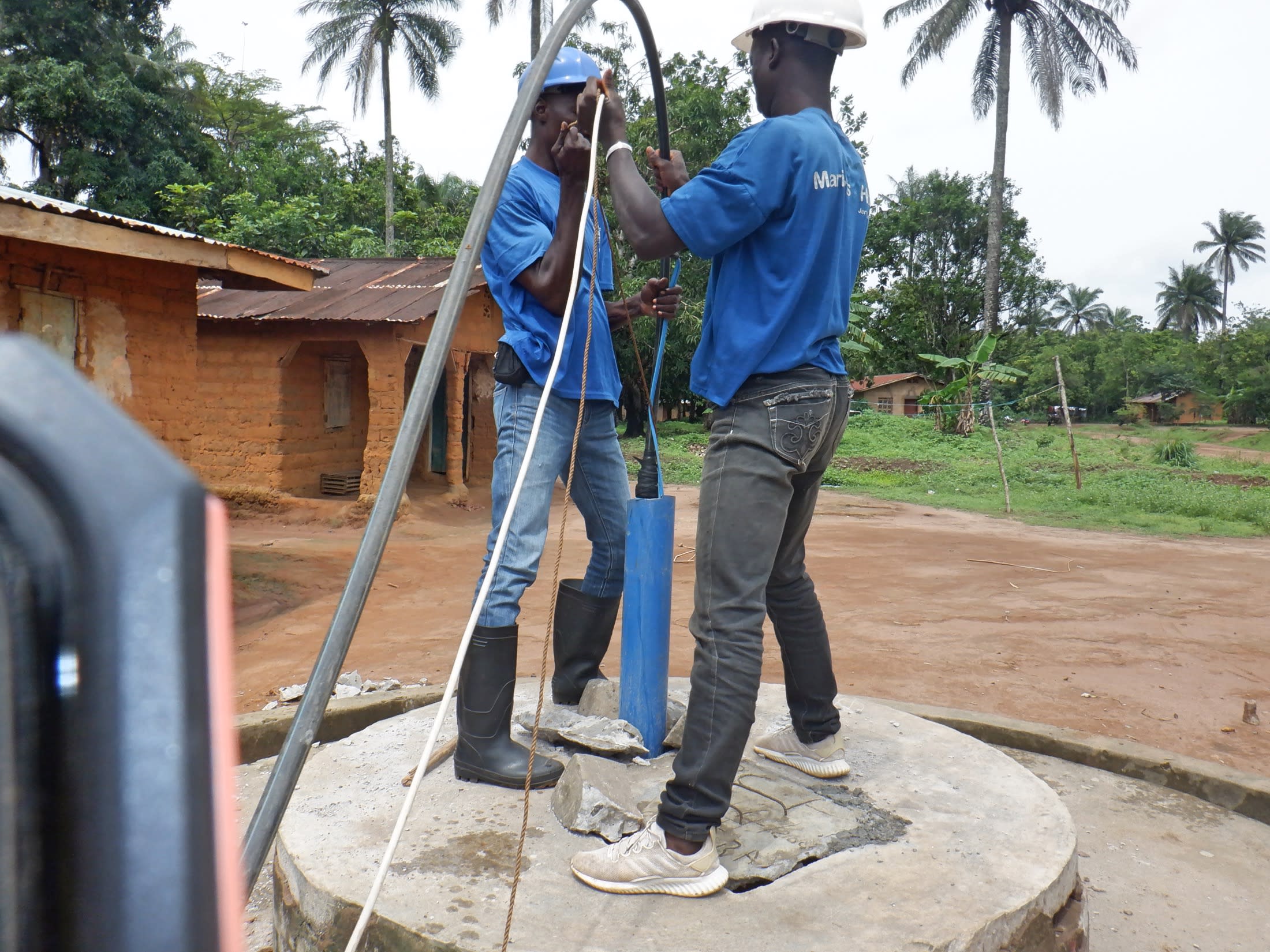
Yield test.
Next, we bailed the well by hand for three days and flushed it, clearing any debris generated by the drilling process. Finally, we tested the yield to ensure the well would provide clean water with minimal effort at the pump.
As the project neared completion, we built a new cement platform, walls, and drainage system around the well to seal it off from surface-level contaminants. The drainage system helps to redirect runoff and spilled water to help avoid standing water at the well, which can be uncomfortable and unhygienic and a breeding ground for disease-carrying mosquitoes.
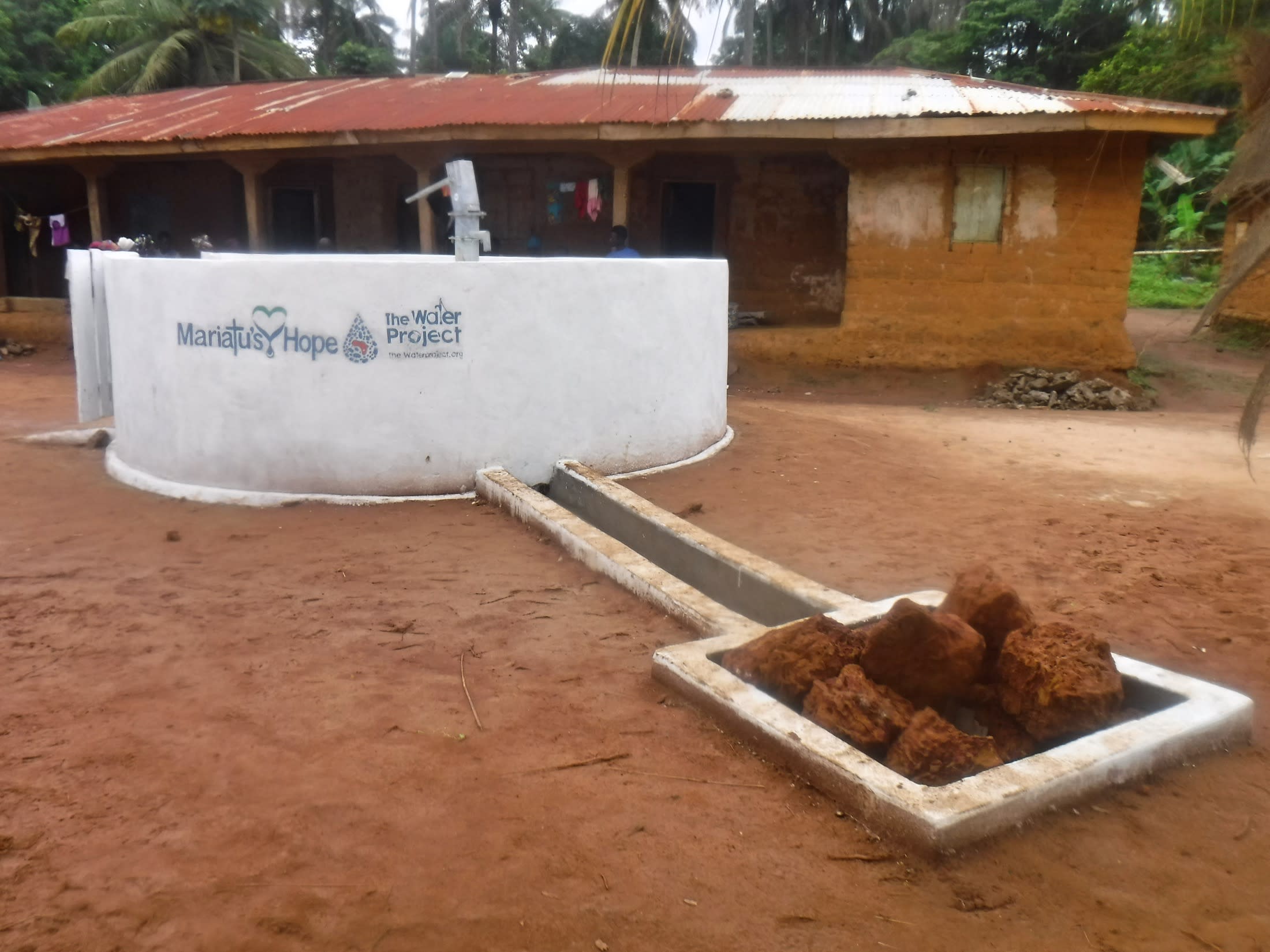
Finished well.
At last, we installed the pump and conducted a water quality test. The test results showed that this was clean water fit for drinking!
New Knowledge
Before conducting any hygiene training, we called and visited the local water user committee to understand the community’s challenges and lack of sanitation facilities. We shared the findings from our discussions with the committee members to help them make the necessary adjustments before the training began. For example, we identified households without handwashing stations or ones that may need to repair their latrines. With this information, community members worked together to improve hygiene and sanitation at home.
After this preparatory period, we scheduled a time when members from each household using the water point could attend a three-day hygiene and sanitation training. We then dispatched our teams to the agreed-upon location to hold the meeting.
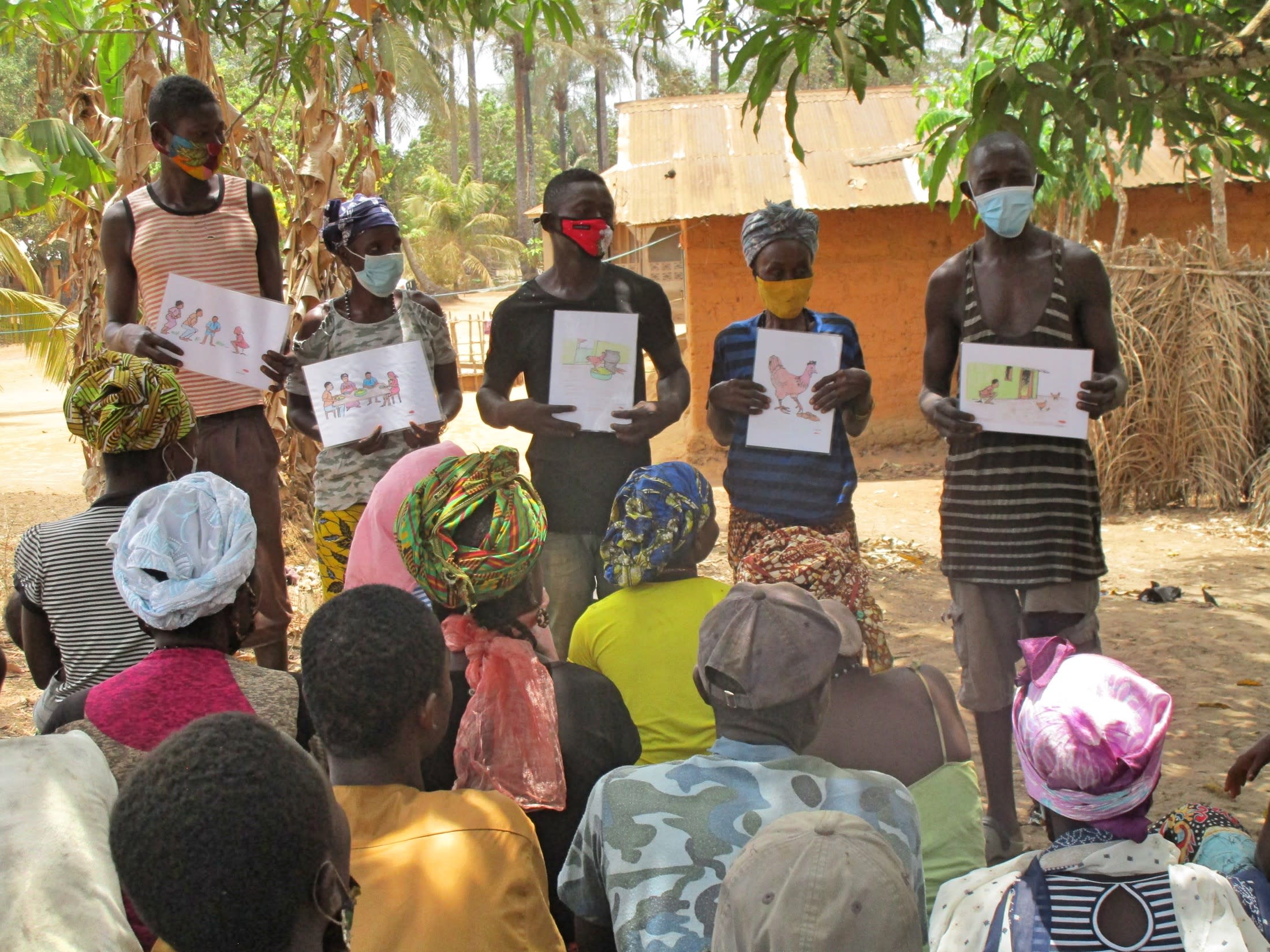
Training topics covered included handwashing and tippy taps, good and bad hygiene habits, disease transmission and prevention, COVID-19, worms and parasites, dental hygiene, proper care of the well's pump, keeping the water clean, the cost recovery system, dish racks and clotheslines, the importance of toilets, keeping latrines clean, balanced diets, the diarrhea doll, and HIV and AIDS.
One of the topics that struck the community members most was disease transmission. One community member named Pa Sorie relayed a story he knew about a family from a neighboring community who died in a cholera outbreak. The mother didn't know that handwashing requires soap to work effectively, and she went straight from changing a baby's diaper to cooking dinner for her family. When the family got sick, they went to a local herbalist rather than the hospital. By the time they realized the treatments weren't working, it was too late, and unfortunately, everyone in the family died. Pa Sorie advised everyone at the training to listen to the lessons in the hygiene training to avoid a similar situation.

Community members put posters of the stages of disease transmission in order.
"As a parent, this training is valuable to me, because what I have learned here today will help to save me and my family's lives," said 38-year-old trader Dora Kamara. "All my bad hygiene practices have come to an end from today onwards, because I want to be healthy. I have gained many things from the three days' training, and I have no regret for that. Thank you for saving our lives in our community."
Conclusion
This project required a substantial collaboration between our staff, our in-country teams, and the community members. When an issue arises concerning the well, community members are equipped with the necessary skills to rectify the problem and ensure the water point works appropriately. However, if the issue is beyond their capabilities, they can contact their local field officers to assist them.
Also, we will continue to offer them unmatchable support as a part of our monitoring and maintenance program. We walk with each community, problem-solving together when they face challenges with functionality, seasonality, or water quality. Together, all these components help us strive for enduring access to reliable, clean, and safe water for this community.
With your contribution, one more piece has been added to a large puzzle of water projects. In our target areas, we’re working toward complete coverage of reliable, maintained water sources within a 30-minute round trip for each community, household, school, and health center. With this in mind, search through our upcoming projects to see which community you can help next!
Thank you for making all of this possible!





 Borehole Well and Hand Pump
Borehole Well and Hand Pump









